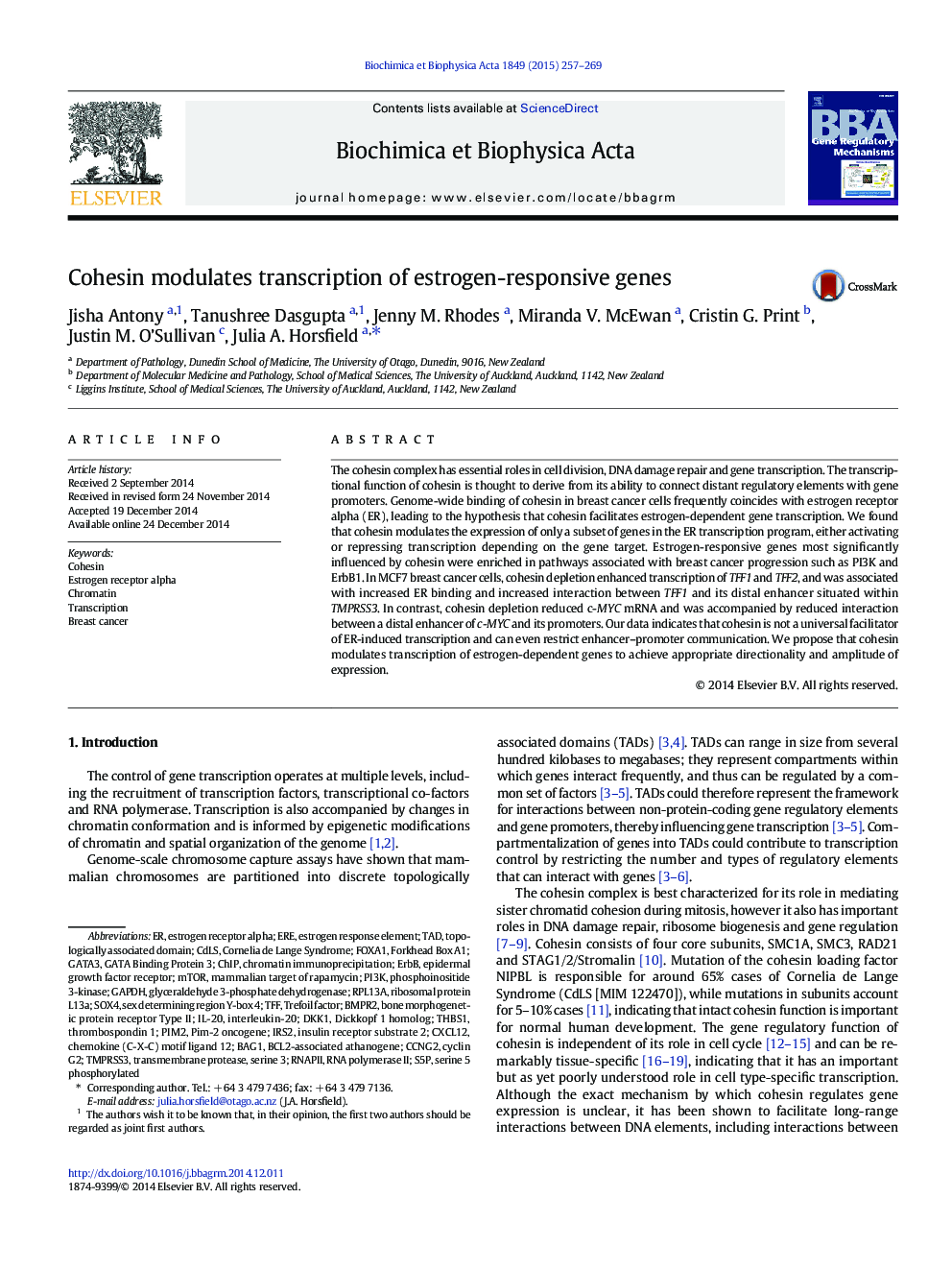| Article ID | Journal | Published Year | Pages | File Type |
|---|---|---|---|---|
| 10799034 | Biochimica et Biophysica Acta (BBA) - Gene Regulatory Mechanisms | 2015 | 13 Pages |
Abstract
The cohesin complex has essential roles in cell division, DNA damage repair and gene transcription. The transcriptional function of cohesin is thought to derive from its ability to connect distant regulatory elements with gene promoters. Genome-wide binding of cohesin in breast cancer cells frequently coincides with estrogen receptor alpha (ER), leading to the hypothesis that cohesin facilitates estrogen-dependent gene transcription. We found that cohesin modulates the expression of only a subset of genes in the ER transcription program, either activating or repressing transcription depending on the gene target. Estrogen-responsive genes most significantly influenced by cohesin were enriched in pathways associated with breast cancer progression such as PI3K and ErbB1. In MCF7 breast cancer cells, cohesin depletion enhanced transcription of TFF1 and TFF2, and was associated with increased ER binding and increased interaction between TFF1 and its distal enhancer situated within TMPRSS3. In contrast, cohesin depletion reduced c-MYC mRNA and was accompanied by reduced interaction between a distal enhancer of c-MYC and its promoters. Our data indicates that cohesin is not a universal facilitator of ER-induced transcription and can even restrict enhancer-promoter communication. We propose that cohesin modulates transcription of estrogen-dependent genes to achieve appropriate directionality and amplitude of expression.
Keywords
cyclin G2RPL13ARNAPIICdLSFoxA1BMPR2cohesinERBBIL-20SOX4Irs2DKK1GATA3PIM2CXCL12BAG1bone morphogenetic protein receptor type IIPI3KThbs1EREGAPDHribosomal protein L13AmTORRNA polymerase IITffchromatin immunoprecipitationInterleukin-20Insulin receptor substrate 2TADthrombospondin 1topologically associated domainTranscriptionBreast cancerCornelia de Lange Syndrometrefoil factorestrogen response elementphosphoinositide 3-kinasemammalian target of rapamycinGATA binding protein 3CHiPChromatinglyceraldehyde 3-phosphate dehydrogenaseEstrogen receptor alphaEpidermal growth factor receptor
Related Topics
Life Sciences
Biochemistry, Genetics and Molecular Biology
Biochemistry
Authors
Jisha Antony, Tanushree Dasgupta, Jenny M. Rhodes, Miranda V. McEwan, Cristin G. Print, Justin M. O'Sullivan, Julia A. Horsfield,
